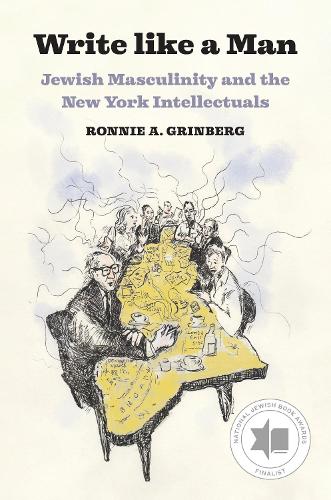
Write like a Man: Jewish Masculinity and the New York Intellectuals
(Hardback)
Publishing Details
Write like a Man: Jewish Masculinity and the New York Intellectuals
By (Author) Ronnie Grinberg
Princeton University Press
Princeton University Press
3rd July 2024
United States
Classifications
Tertiary Education
Non Fiction
Gender studies: men and boys
305.388924
Physical Properties
Hardback
384
Width 156mm, Height 235mm
Description
How virility and Jewishness became hallmarks of postwar New Yorks combative intellectual scene
In the years following World War II, the New York intellectuals became some of the most renowned critics and writers in the country. This prominent group was mostly male and Jewish, but also included women and non-Jews, and all embraced a secular Jewish machismo that became a defining characteristic of the contemporary experience. Write like a Man examines how the New York intellectuals shared a uniquely American conception of Jewish masculinity that prized verbal confrontation, polemical aggression, and an unflinching style of argumentation.
Ronnie Grinberg paints illuminating portraits of figures such as Norman Mailer, Hannah Arendt, Lionel and Diana Trilling, Mary McCarthy, Norman Podhoretz, Midge Decter, and Irving Howe. She describes how their construction of Jewish masculinity helped to propel the American Jew from outsider to insider even as they clashed over its meaning in a deeply anxious project of self-definition. Along the way, Grinberg sheds light on their fraught encounters with the most contentious issues and ideas of the day, from student radicalism and the civil rights movement to feminism, Freudianism, and neoconservatism.
A spellbinding chronicle of midcentury America, Write like a Man shows how a combative and intellectually grounded vision of Jewish manhood contributed to the masculinization of intellectual life and shaped some of the most important political and cultural debates of the postwar era.
Author Bio
Ronnie A. Grinberg is assistant professor of history and a core faculty member of the Schusterman Center for Judaic and Israel Studies at the University of Oklahoma.
